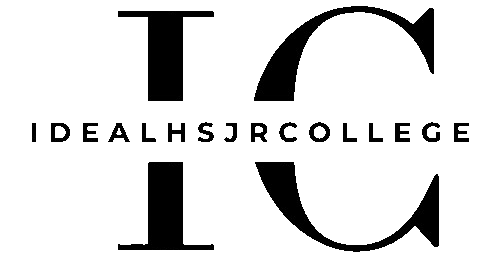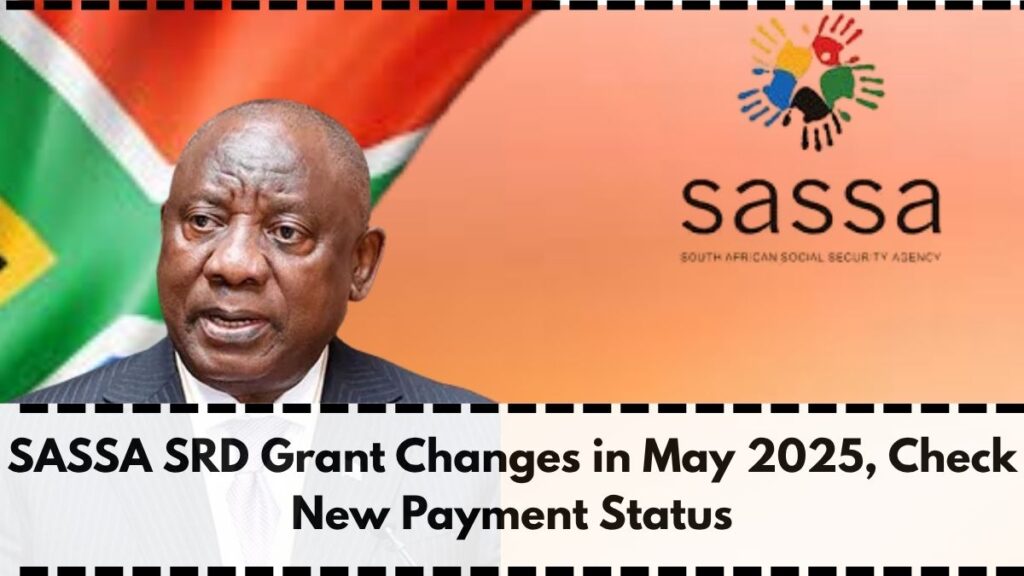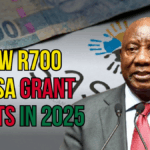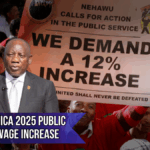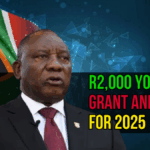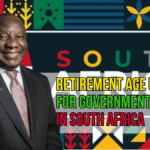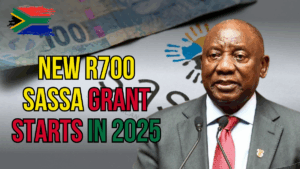South Africa’s Social Relief of Distress (SRD) Grant is undergoing a significant transformation following a landmark ruling by the Pretoria High Court in January 2025. This decision has redefined the framework of social assistance, especially for millions of unemployed South Africans who rely on this financial lifeline. The upcoming changes, to be implemented by May 2025, will address long-standing issues related to grant amounts, eligibility criteria, application processes, and accessibility.
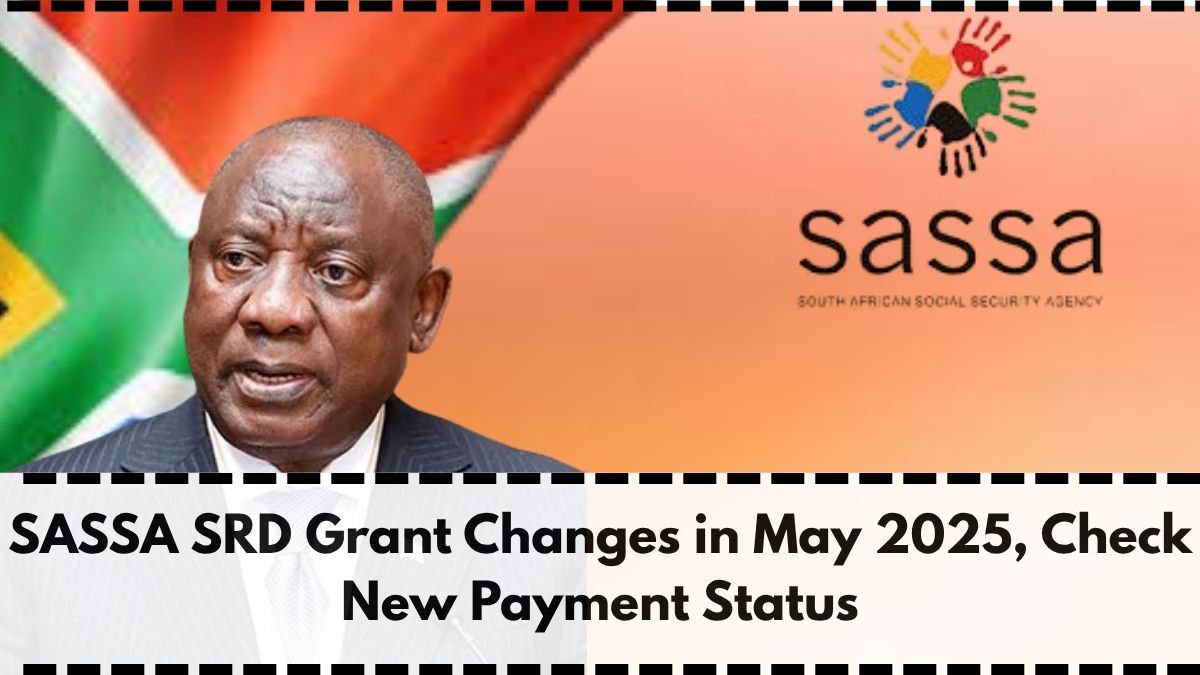
Summary Table: Key Facts at a Glance
Aspect |
Details |
|---|---|
Program Name |
Social Relief of Distress (SRD) Grant |
Current Amount |
R370 per month |
Proposed Amount (Estimated) |
R420 – R500 per month |
Deadline for Reforms |
May 2025 |
Main Legal Trigger |
High Court Ruling – January 24, 2025 |
Key Legal Petitioners |
Institute for Economic Justice, #PayTheGrants campaign |
Expected Beneficiaries |
Up to 18.3 million |
Current Budget Allocation (2024/25) |
R33.6 billion |
Projected Additional Cost |
R35 billion (for full compliance) |
Implementation Body |
South African Social Security Agency (SASSA) |
Official Website |
The Ruling That Changed South Africa’s Social Assistance Framework
On January 24, 2025, Judge Leonard Twala of the Pretoria High Court delivered a ruling that declared multiple regulations governing the SRD grant unconstitutional and invalid. The ruling was the result of legal actions taken by the Institute for Economic Justice and #PayTheGrants, who argued that the current system unfairly excluded large segments of the population.
The court ordered the Minister of Social Development, in collaboration with the Minister of Finance, to create and submit a comprehensive plan by May 2025. The plan must address these exclusions and progressively expand the grant system to meet constitutional standards.
What’s Changing by May 2025?
1. Grant Amount Likely to Increase
Currently set at R370 per month, the SRD grant has seen only a marginal increase from the original R350. The court has directed that this amount be reviewed and increased to better reflect inflation and cost-of-living increases.
Experts forecast the new amount could range between R420 and R500 per month, offering more meaningful relief to recipients.
2. Income Threshold to Be Revised
The current income threshold of R624 per month for eligibility has been ruled invalid. The court emphasized the need for a progressively adjusted threshold that takes into account inflation and the constitutional right to social assistance.
This change is expected to broaden eligibility, possibly enabling thousands more South Africans to qualify.
3. Definition of Income Reworked
A major reform involves redefining how income is calculated. The new guidelines will count only regular earnings from employment, business, or investments as income, explicitly excluding one-off transfers or gifts.
This addresses a critical flaw where applicants were unfairly disqualified for receiving temporary family help or once-off cash deposits.
4. In-Person Applications Mandated
The court found the online-only application process unconstitutional, particularly for those without reliable internet access or digital literacy.
SASSA must now allow in-person applications at local offices, ensuring rural and technologically disadvantaged communities have fair access to the grant system.
Administrative & Financial Challenges Ahead
Implementing these changes will be financially and administratively demanding. According to National Treasury estimates, full implementation could require an additional R35 billion, putting significant pressure on public finances.
Despite estimates that up to 18.3 million people qualify, the Treasury has only allocated enough funding for 8 million beneficiaries, revealing a clear budget shortfall.
This dilemma highlights the ongoing tension between legal obligations and fiscal realities in South Africa’s public policy landscape.
Current Operations: What Recipients Should Know
While these transformative reforms are being prepared, SASSA continues with existing operations. For 2025, R265 billion has been budgeted for all social grants, with the SRD grant forming a substantial portion.
Payment Status:
-
Beneficiaries continue to receive R370 per month
-
February 2025 payment window: February 24–28
-
Identity verification remains essential—recipients receiving a “verification required” message must act promptly to prevent suspension.
Enhanced Security and Fraud Prevention
In January 2025, SASSA introduced a new black payment card, offering better security and digital transaction features. These cards are aimed at reducing fraud and simplifying payments.
Additionally, SASSA has strengthened anti-fraud measures, including the cancellation of fraudulent COVID-19 SRD claims. Legitimate recipients who were affected can reapply after verifying their identity.
What’s Next After May 2025?
The changes coming in May 2025 may lay the groundwork for long-term reforms, including discussions around a Universal Basic Income Grant (UBIG).
As the government assesses its ability to sustain expanded social assistance, these developments will play a crucial role in shaping South Africa’s social protection policy over the coming decade.
Frequently Asked Questions (FAQs)
1. What is the SRD Grant?
The SRD (Social Relief of Distress) Grant is a temporary financial support program by SASSA aimed at unemployed individuals with no alternative income sources.
2. Will the SRD grant amount increase in 2025?
Yes, the High Court has directed a review and increase of the grant amount, potentially to R420–R500 per month by mid-2025.
3. Can I still apply online?
Yes, online applications remain active, but SASSA will also introduce in-person application options starting in 2025.
4. How will the income threshold change?
The fixed threshold of R624/month will be replaced by a progressively adjusted benchmark, taking into account inflation and cost of living.
5. Where can I apply or check my status?
Visit the official SASSA SRD portal: https://srd.sassa.gov.za
Final Thoughts
The High Court ruling and the resulting reforms promise to transform South Africa’s approach to social assistance. While the path forward involves major logistical and fiscal challenges, it also presents a unique opportunity to ensure more inclusive, equitable, and effective support for the nation’s most vulnerable.
As May 2025 approaches, all eyes will be on the government’s ability to implement these changes and meet its constitutional obligations to the people of South Africa.
For More Information Click Here
